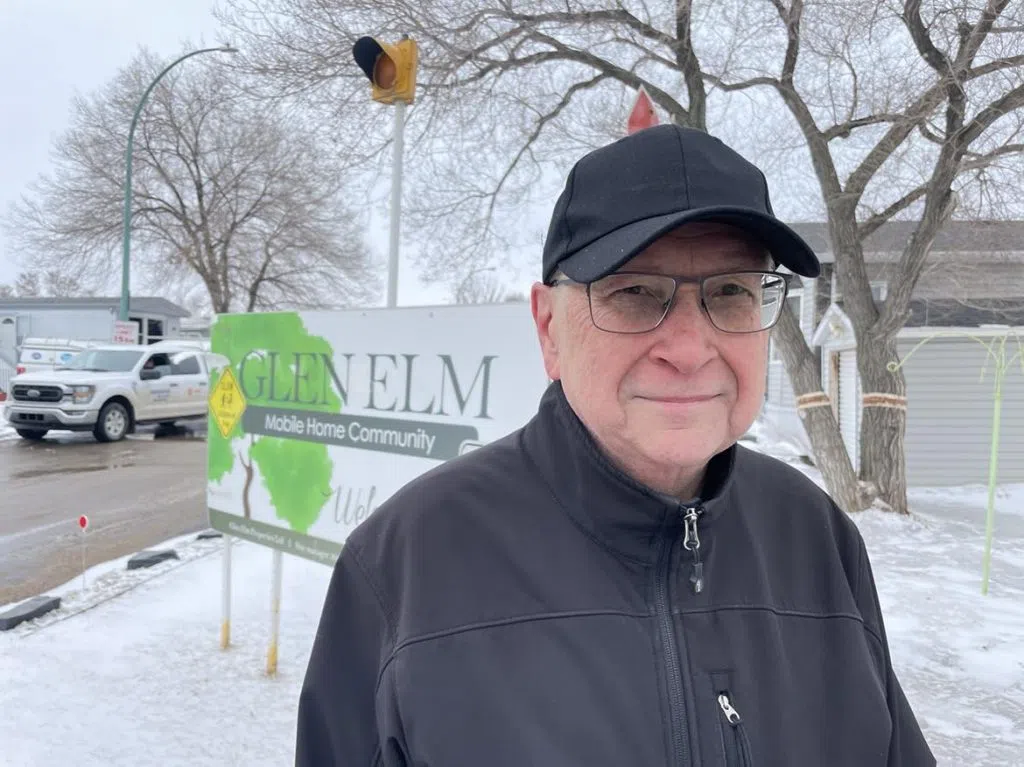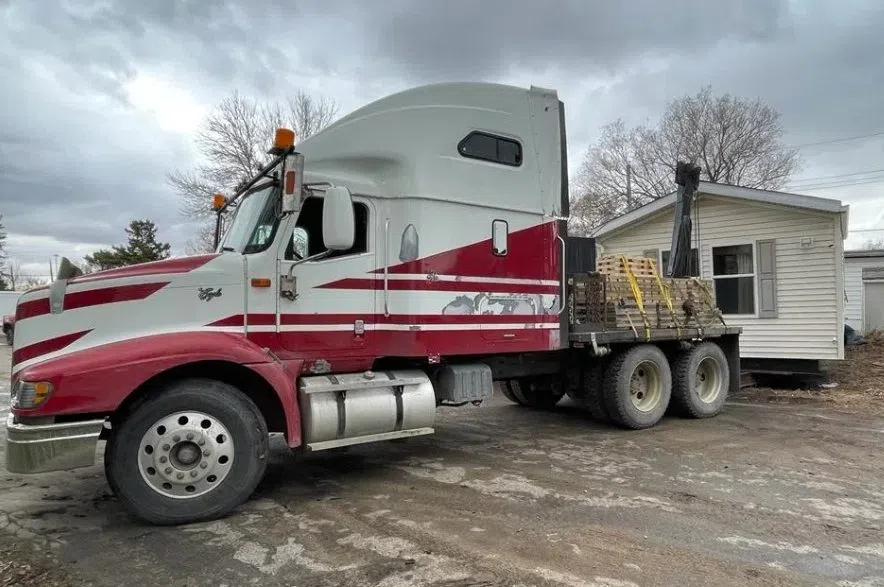Regina City Council approved a motion that changes the city’s zoning bylaws to allow for manufactured homes in all residential zones in the city.
The motion came from Ward 6 Coun. Victoria Flores, back in March, in light of the mass evictions of tenants in the city’s Glen Elm Trailer Court earlier this year.
Read more:
- ‘I’ll die in my home’: Evicted Glen Elm residents seeking remedy from Regina council
- Warming spaces in Regina: provincial funding increased for homelessness strategy
- 980 CJME’s Santas Anonymous is set to give kids presents for its 56th year
Under the city’s zoning bylaws, a manufactured home is defined as a “transportable structure placed atop a permanent frame or chassis and is designed to be transported on wheels and chassis or by other means,” certified by the Canadian Standards Association.
Under the old bylaw, manufactured homes were only allowed in the Glen Elm and Argyle Park neighbourhoods.
On Wednesday, the decision was passed 8-3, with councillors Flores, George Tsiklis (Ward 2), Shobna Radons (Ward 7), David Froh (Ward 3), Sarah Turnbull (Ward 5), Jason Mancinelli (Ward 9), Shanon Zachidniak (Ward 8) and Mayor Chad Bachynski voting in favour, while councillors Dan Rashovich (Ward 1), Clark Bezo (Ward 10) and Mark Burton (Ward 4) voted against.
Randall Edge, president of the Glen Elm Retirement Community Residents Association, said the bylaw change would help keep members of the community in the city.

Randall Edge, who lives in the Glen Elm Mobile Community Home, is one of the residents forced to leave by the property owner after it says its water and sewer system is failing.
(Gillian Massie/ 980 CJME)
He told council that of the 150 families that lived in Glen Elm, 117 were forced to leave Regina this year.
“Our families have chosen to live here. We’re homeowners here, we’re taxpayers here, we want to stay here,” Edge said.
“This would give us a place for us to go, literally in the city of Regina.”
Edge also dismissed the notion that manufactured homes were only temporary, pointing to the 70-year existence of Glen Elm as a community.
Coun. Flores said this bylaw amendment would also aid the city’s housing crisis.
“Overall, I find that we’re taking a step forward in the right direction. This opens up options for manufacturer homes of all sizes, from tiny homes … to many other options that families now have access to, and I find it really great that we’re doing this city-wide,” she said.
Coun. Rashovich said he wasn’t against the expansion of manufactured homes, but cautioned against a blanket approach for the city.
“I can see people getting very upset about that, because I still think there should be manufactured homes in certain areas that don’t maybe affect assessed values in neighbourhoods,” Rashovich said.
Deputy city manager Deborah Bryden explained that the assessed values of manufactured homes vary greatly.
“When we were talking about manufactured homes, some of them would come at a lower cost than it might cost to build a 2,000 square foot home, but some of them might not,” Bryden said.
The deputy city manager also said there was no evidence of manufactured homes decreasing property values in a neighbourhood.
Jaysee Stanhope, another member of Glen Elm’s community association, said that manufactured homes have made leaps and bounds in terms of quality over the past several decades.
“A lot of people think manufactured homes are what they were in the 1940s and 1950s – ugly little boxes. They aren’t that anymore,” she said.
“They’re very nicely designed. If you go on the Olympic website, they have designs from everything from the Cape Cod up to a home that would not be out of place in the Greens or Harbour Landing.”
Stanhope said she grew up in a manufactured home, and said they could be a more affordable alternative.
“Councillors are probably getting a lot of flak from their constituents, because nobody wants a trailer park in their backyard. Well, guess what? Not all of us want to live in your backyard,” Stanhope said.
“We want to live in our own little space, mind our own business, live our lives. All we’re asking for is the right to do that.”
Stanhope also said the homes will still be subject to the same height requirements as any other home in the city and need to be built on a concrete foundation.











